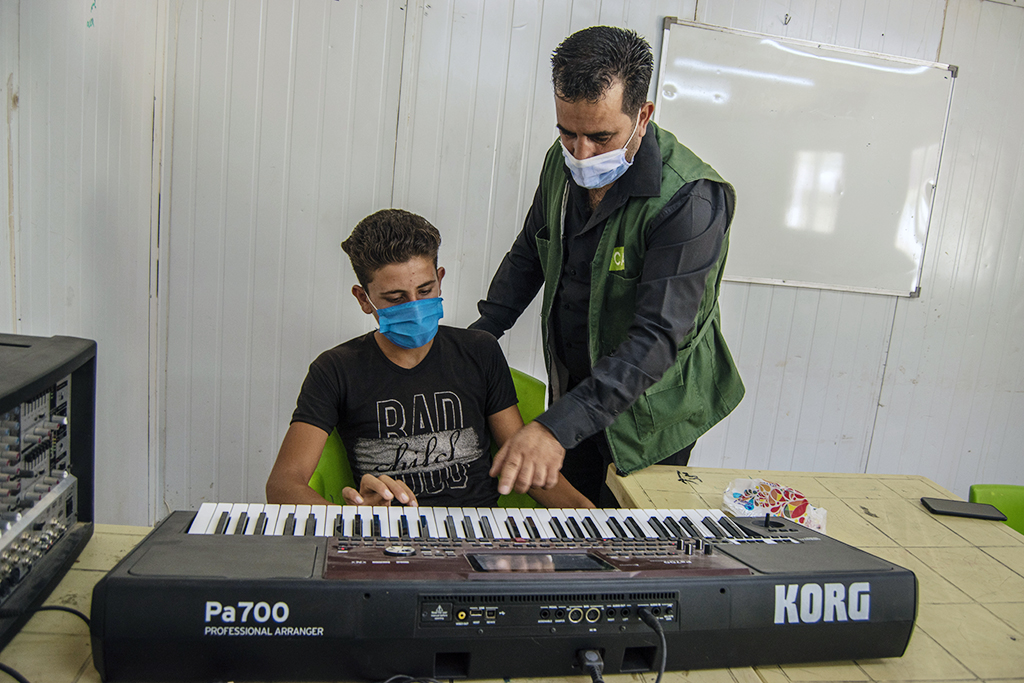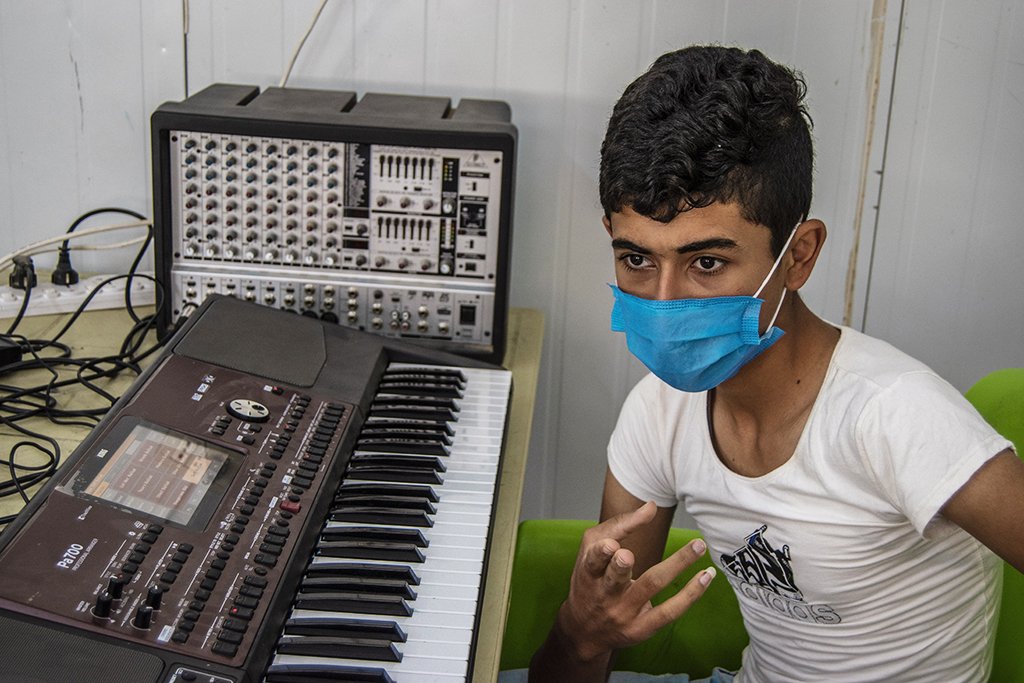Music brings calm and joy to Syrian youth in Za’atari refugee camp in Jordan
Music is a source of relief to youth coping with the stress of living as refugees in Jordan. FCA’s learning centre teaches them how to play instruments and compose.
Mohammad Al-Ahmad and Moutaz Al-Zoubi have spent most of their lives in Za’atari refugee camp in Jordan. The lives of the two 17-year-olds have been full of changes due to the war in Syria.
Like many other of their age, they had to abandon their homes and schools in Syria when they were children and adjust to life in a refugee camp while losing contact with their friends at home. Refugee children have grown up in a setting of uncertainty and frustration in neighbouring Jordan.
Mohammad and Moutaz describe music as a vital outlet for their emotions and a source of joy.
“I don’t own an instrument, but I have a great passion for music. I want to become a famous, respected and beloved keyboard player when I grow up”, Mohammad says.

Mohammad Al-Ahmad says he gains energy from his music lessons.
Psychosocial support puts minds at ease
When Za’atari refugee camp opened in 2012, Syrians found shelter and emergency assistance, but life was limited. There were no recreational activities or any other ways for children and youth to pass the time. Finn Church Aid (FCA) along with other organisations responded with psychosocial support activities, such as football, netball, circus and music lessons at FCA’s compound in Za’atari.
Meaningful ways of passing time have an immense effect on the well-being of children and youth burdened by the experiences of war and losing their homes. Mohammad’s mind is at ease at FCA’s learning centre. Here, he learnt how to play the keyboard, and he feels energetic when playing.
“I hope I become a professional, like our teacher. I want to teach the children of the camp, especially those that never had a chance to play instruments”, Mohammed says.
Moutaz says he enjoys all kinds of instruments and mentions particularly the keyboard, the oud – a kind of lute – and the darbuka drum. He is also comfortable with singing with a microphone.

Moutaz Al- Zoubi hopes to teach others someday how to play instruments.
Music sessions on Whatsapp during the pandemic
The recreational activities were brought to a halt in March when preventive measures to curb the spread of the coronavirus restricted gatherings in the camp. The music lessons resumed in June with assignments and exercises delivered via Whatsapp. The learners sent recordings to their teacher who replied with feedback. The teachers are also Syrian refugees who live in the camp.
Now the youth have returned to class, and everyone wears a face mask. It is a relief that activities continue, also because of the added distress caused by the effects of the Covid-19 pandemic.
The parents of the participants report that they notice a change in the attitudes and self-confidence of the youth, and say that they are more determined than before. Moutaz agrees.
“Music helps me relax when I am angry or feel down, and singing makes me full of joy”, he says.
Text: Aisha Shtiwi / Oxfam in Jordan
Photos: Wisam Al-Riyabi
Individual supporters donated different types of musical instruments to FCA’s learning centres in Za’atari and Azraq refugee camps in Jordan.